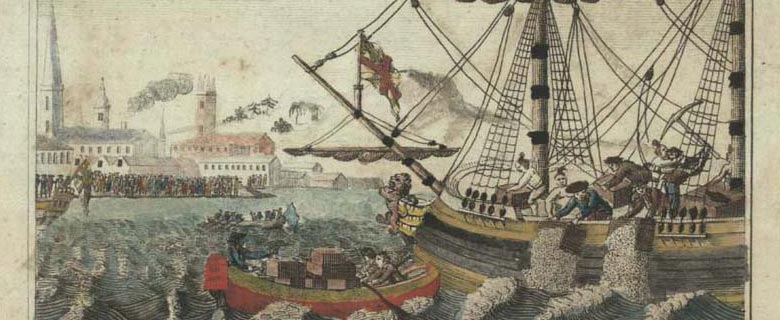Tea And The American Revolution

On this day in 1773 a group, led by Sam Adams, congregated in Boston Harbour. Adams and company, collectively they were known as the Sons of Liberty, did their best to go unnoticed, meeting in the dead of night and concealing their identities.
The group scaled boarded three ships, the Dartmouth, the Eleanor, and the Beaver, and dumped case after case of tea overboard. The value of the imported tea that was lost that night has been estimated to be $18,000. More importantly, it was an act of defiance that put into motion the events that would bring about the American Revolution.
But why was tea targeted?
Before you start worrying, it’s not because large swathes of the colonialist U.S population hated the taste of it. Instead, tea was chosen because of its political status.
In the 1770s the majority of the Eastern Seaboard of America was under British rule and was governed, from London, by the Houses of Parliament. Somewhat understandably, this was a point of contention for who were living thousands of miles away from the people that were deciding their affairs.
A few months prior to the infamous Boston Tea Party, Parliament had passed the Tea Act. This piece of legislation was deeply unpopular across the Atlantic as it attempted to force those in America to purchase their tea from the British East India Company, who were effectively being state subsidised. If they wanted to purchase their tea elsewhere, they’d have to pay through the nose. In turn, this implicitly allowed those in London to determine tax rates in the colonies.
In the words of the historian Benjamin Labaree, Lord North, who oversaw the law, “unwittingly hammered a nail in the coffin of the old British Empire” with this Act.
Opponents to the law in New York and Philadelphia oversaw the return of British tea while those in Charleston left tea on the dockside to rot. Boston though set about to destroy a shipment.
While other port cities followed would follow suit, the British wrath was focused upon The Bay State’s capital. Again, the actions of Parliament would prove to be short-sighted as the Intolerables Act, passed a year after the Boston Tea Party, punished Boston and the wider Massachusetts population.
It only stoked the discontent in the region and the American Revolutionary War became an inevitable outcome.
So, after that, it is safe to say that tea played an important part in the foundation of the United States.
“Boston Tea Party-Cooper” by W.D. Cooper – Licensed under Public Domain via Commons.
